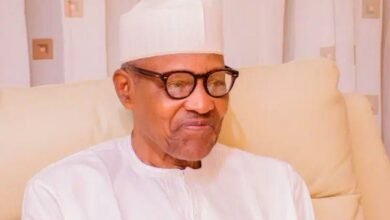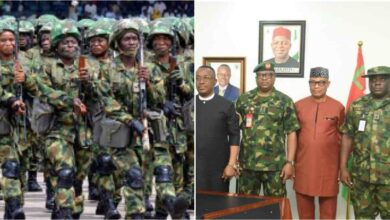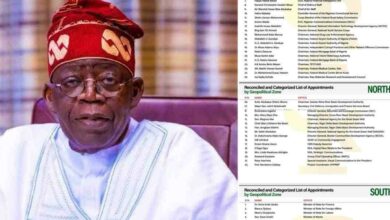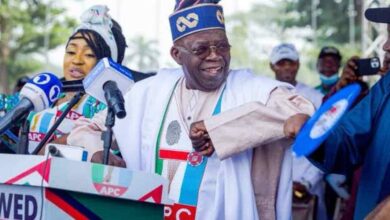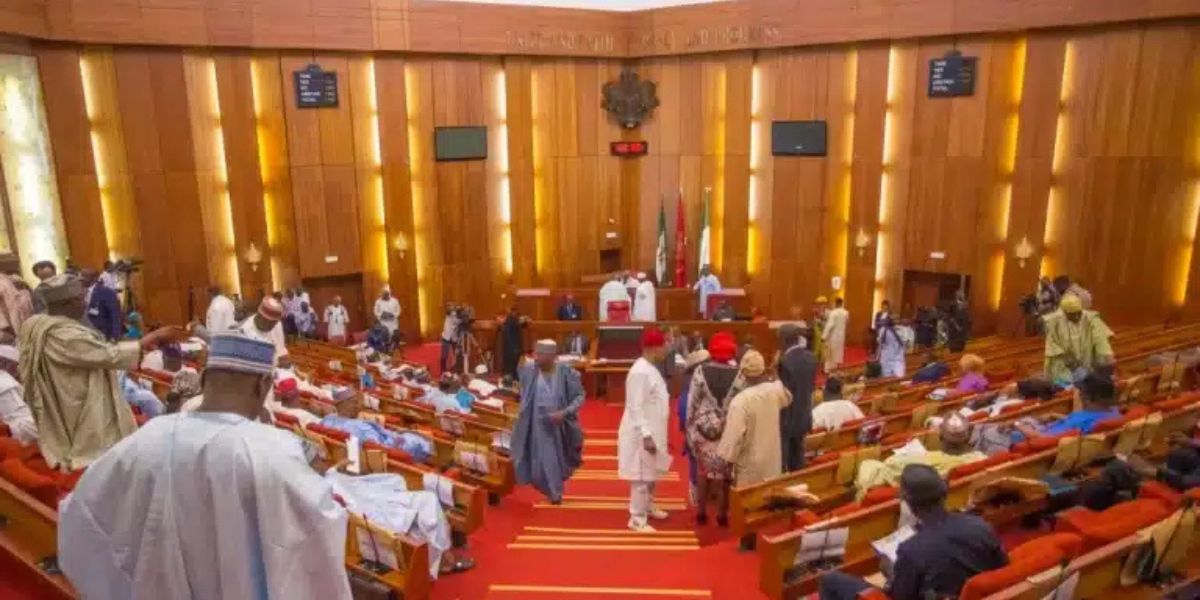
Nigeria’s access to a $602.95 million USAID grant for 2025 is now uncertain following a 90-day suspension of all agency programs by President Donald Trump.
The suspension stems from an executive order signed by Trump in January 2025, mandating a full review of U.S. foreign aid to ensure effectiveness, eliminate waste, and align spending with national interests.
With the freeze in place, critical funding for health, governance, economic development, and security hangs in the balance. The move has already disrupted multiple USAID-supported programs, leaving Nigeria uncertain about its planned allocations.
Meanwhile, the Nigerian Senate has summoned intelligence chiefs to investigate allegations by U.S. Congressman Perry Scott that USAID funds were being funneled to terrorist organizations, including Boko Haram.
Summoned officials include the heads of the National Intelligence Agency (NIA), Defence Intelligence Agency (DIA), Department of State Services (DSS), and National Security Adviser Nuhu Ribadu. The resolution followed an urgent motion by Senator Ali Ndume (Borno South).
Impact on Nigeria’s Health Sector
According to the 2025 USAID budget proposal, 89.27% of the $602.95 million grant was earmarked for health programs.
The largest share—$368 million—was allocated for HIV/AIDS under the Global Health Program, with additional funds for tuberculosis, malaria control, maternal and child health, and reproductive health.
Despite these allocations, water and sanitation funding was only $2.5 million, raising concerns about access to clean water, particularly in rural areas.
With USAID funding frozen, the Nigerian government has approved $200 million in emergency funds to sustain healthcare services, including vaccine procurement, antiretroviral drug distribution, and maternal health care.
The government is also planning to absorb 28,000 health workers previously funded under the USAID program.
The Federal Executive Council has approved ₦4.5 billion for HIV treatment packs to support Nigerians living with HIV/AIDS.
Uncertainty Over Governance and Security Funding
Beyond health, USAID had allocated $7.5 million for governance and democracy initiatives, covering rule of law, civil society engagement, and human rights programs. The aid suspension now casts doubt on these efforts.
Security funding is also under review, with $7.6 million initially earmarked for strengthening Nigeria’s security capabilities.
This included support for conflict mitigation, military partnerships, and law enforcement. Any cuts to these funds could hinder Nigeria’s fight against Boko Haram and ISWAP insurgents.
Economic Programs at Risk
The aid freeze also affects economic growth programs, which were set to receive $39.6 million, primarily for agriculture, private sector productivity, and clean energy projects.
If the freeze extends beyond the initial 90-day review period, Nigeria may have to rely more on domestic revenue or seek alternative funding from the World Bank and African Development Bank.
U.S. Response to Allegations
The U.S. Embassy in Nigeria has denied allegations that USAID funds were misused, reaffirming strict monitoring systems to prevent diversion to terrorist groups.
The U.S. government has also condemned Boko Haram’s atrocities and reiterated its commitment to assisting Nigeria in counterterrorism efforts.
Nigerian Senate’s Next Steps
During Wednesday’s Senate plenary, Senator Ndume urged a full investigation into Scott Perry’s claims, emphasizing that verifying USAID fund usage is crucial to ending speculation about terrorist financing.
Senator Abdul Ningi (PDP, Bauchi-Central) supported the motion, proposing a closed-door session with intelligence chiefs for a detailed briefing.
The Senate adopted this approach, with Senate President Godswill Akpabio emphasizing the need for classified discussions before further action.
Borno State Reacts
Borno State officials acknowledged concerns over potential aid misuse. Special Adviser to Governor Babagana Zulum, Brig. Gen. Abdullahi Ishaq (retd.), referenced previous reports of NGOs being involved in suspicious activities related to insurgency financing.
Chief of Defence Staff Gen. Christopher Musa also highlighted cases where Boko Haram members were found with foreign currency, raising questions about their funding sources.
He urged the United Nations to investigate the financial and logistical support sustaining terrorist groups in Nigeria.
With USAID aid now under scrutiny, Nigeria faces potential funding shortages across multiple sectors, increasing pressure on the government to secure alternative financial support.
